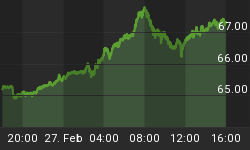Romania, Azerbaijan, and Georgia on April 13, 2010, took a major step toward the implementation of a substitute energy distribution network to substitute for the US-backed Nabucco strategic gas pipeline complex.
Azerbaijan Minister of Industry and Energy Natik Aliyev, Romanian Minister of Economy, Commerce and Business Environment Adriean Videanu, and Georgian Energy Minister Alexander Khetaguri met in Bucharest to sign a new agreement in the gas sector. The new agreement constitutes an expansion of the late February agreement that was limited to LNG exports to Romania. The new agreement set forth modalities for exporting LNG to the rest of the European Union (EU) via Romania. The new project will now be known as the Azerbaijan-Georgia-Romania-Interconnection project (AGRI).
The April 13, 2010, agreement also included specific modalities for the joint construction of two terminals to transport natural gas from the Caspian Sea to Europe across the Black Sea, as well as the setting up of an AGRI headquarters in Bucharest in the next few months.
Bucharest considers the new agreement to be a milestone in the development of natural gas exports to the EU. "Romania will insist this one becomes one of the priority projects at the European level," Videanu said at the signing ceremony. "The project brings energy resources from the Caspian zone to the EU." With the AGRI online, he stressed, Romania would play "a very important role" in gas supplies to Europe. The AGRI agreement aimed to provide for "possible avenues for gas transit diversification to Europe from Azerbaijan", explained another senior Romanian official.
For political reasons, all senior officials were quick to state that the new AGRI was not competition to Nabucco, let alone a substitute, despite the reality that this was, in fact, an almost inevitable outcome of AGRI. For example, the Romanian Ambassador to Azerbaijan Nikolae Ureke noted that AGRI was intended to fill in the gaps created by continued delays in the Nabucco project. "The reason of nonrealizability of this project is the shortcoming of finance. We hope that Nabucco project will be realized next year as planned. AGRI project isn't a competitor for Nabucco, it is a complementary project. Europe needs alternative projects for guarantee of energy sources. It would cause the falling of a high gas price." SOCAR head Rovnag Abdullayev also stressed that Azerbaijan's commitment to AGRI need not be perceived as the abandonment of other gas export venues such as Nabucco. "We have several options, including the export of LNG and CNG. There are also possibilities for transit through Turkey. The variety of these options will allow us to choose the right path," he said.
Azerbaijan's Aliyev stated that the AGRI project was a major development "for all European states". He stressed that Baku considered the signing of the AGRI agreement to be "an historic event". Aliyev elaborated on Azerbaijan's commitment: "We supported Romania's proposal of a transport system to deliver natural gas and liquefied gas to Romania. A special attention is paid to this project in our country. We're charging our national companies to carry out a detailed economic, commercial, financial and judicial research addressing this project to prove its economic efficiency and indicate the tools for this project. This project is not only important for Azerbaijan, but also for all countries in the Black Sea region. ...This is the explanation for European states' interest in Azerbaijan. We are in favor of diversifying energy resources transport routes."
Romania's Videanu was most explicit in comparing between AGRI and Nabucco. He noted that AGRI could be brought online sooner than the Nabucco gas-pipeline project. AGRI, he stressed, "is the fastest and the most efficient project within the European southern corridor". Videanu added that, from the beginning, only a part of the natural gas transported via AGRI would be used by Romania so that exports would be immediately possible. While the initial annual capacity of AGRI is expected to be 7bn cubic meters, Romania would need only two-billion cubic meters. Bucharest plans on exporting the rest via the EU system feeder-pipelines Nabucco was originally expected to rely on. "AGRI complements Nabucco, is part of the numerous project on the southern corridor and Romania will insist to make it one of the main projects, including at a EU level," Videanu concluded.
Ultimately, Bucharest considers AGRI a key component of the comprehensive improvement of relations and cooperation between Baku and both NATO and the EU. Bucharest is playing a key role in solidifying these relations. Romania is cognizant of the singular geo-strategic importance of Azerbaijan in the GBSB. "Due to the active participation in anti-terrorist operations, geo-strategic position and potential in addressing the energy security, Azerbaijan is a very important country for NATO," Ureke explained in a recent lecture at the Azerbaijani Presidential Center for Strategic Studies. Therefore, Romania is working hard to ensure that NATO's cooperation with Azerbaijan is commensurate. "The process of updating the new NATO strategy includes developing cooperation with Caspian countries, and Azerbaijan is a very important NATO partner," Ureke emphasized.
The speed and resolve with which Romania, Azerbaijan and Georgia are moving to implement AGRI clearly demonstrate that they are cognizant of its potential great role in enhancing the energy security of the EU. Whether AGRI will ultimately emerge as a substitute for Nabucco or just a complement is irrelevant given AGRI's ability to provide short-term concrete solutions when Nabucco still remains a pipe-dream.
Analysis By Yossef Bodansky for Oilprice.com who offer detailed analysis on Crude oil, Geopolitics, Gold and most other Commodities. They also provide free political and economic intelligence to help investors gain a greater understanding of world events and the impact they have on certain regions and sectors. Visit: http://www.oilprice.com















